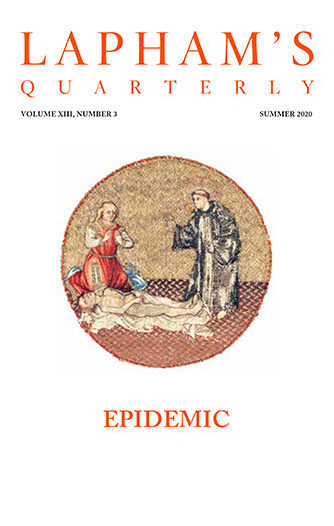When the king of Egypt was obstinate respecting allowing the nation of the Hebrews to depart, a greater evil than the former ones was descended upon him.
For while it was bright daylight, on a sudden, a thick darkness overspread the land, as if an eclipse of the sun more complete than any common one had taken place. And it continued with a long series of clouds and impenetrable density, all the course of the sun’s rays being cut off by the massive thickness of the veil that was interposed, so that day did not at all differ from night. For what indeed did it resemble but one very long night equal in length to three days and an equal number of nights? And at this time they say that some persons threw themselves on their beds, and did not venture to rise up, and that some, when any of the necessities of nature overtook them, could only move with difficulty by feeling their way along the walls or whatever else they could lay hold of, like so many blind men; for even the light of the fire lit for necessary uses was either extinguished by the violence of the storm or else it was made invisible and overwhelmed by the density of the darkness, so that that most indispensable of all the external senses, namely, sight, though unimpaired, was deprived of its office, not being able to discern anything, and all the other senses were overthrown like subjects, the leader having fallen down. For neither was anyone able to speak or to hear, nor could anyone venture to take food, but they lay themselves down in quiet and hunger, not exercising any of the outward senses, but being wholly overwhelmed by the affliction till Moses again had compassion on them and besought God on their behalf. And he restored fine weather and produced light instead of darkness, and day instead of night.
From On the Life of Moses. A Hellenized Jew born in Alexandria around 15 bc, Philo was strongly influenced by both Platonic philosophy and Jewish ethics. He became head of the Jewish delegation to Caligula in Rome after a violent pogrom broke out in the summer of 38. The emperor was unsympathetic to the request to reaffirm Jewish rights—which had previously been confirmed by Augustus—but Philo told his fellow delegates not to worry: Caligula would be punished. The emperor was assassinated shortly thereafter.
Back to Issue

